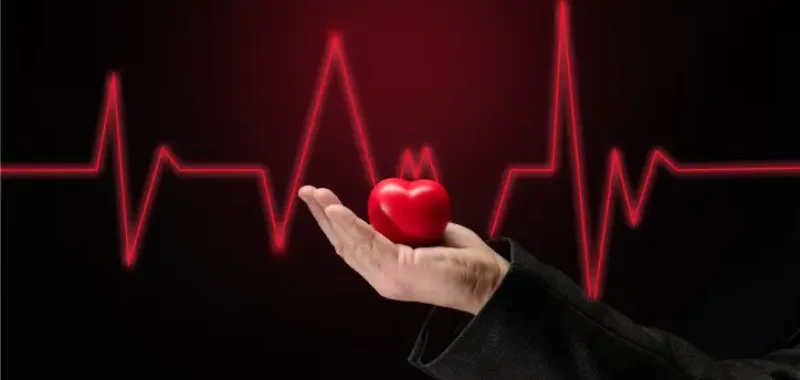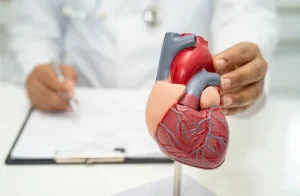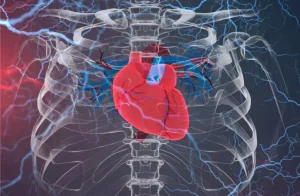If you’re living with atrial fibrillation (AFib), you know those sensations all too well. It’s like your heart is out of sync, skipping beats or beating too fast. But here’s the burning question: Can AFib be cured?
Let’s cut through the confusion and get to the heart of the matter. In this post, we’ll discuss the latest research on AFib treatments and what a “cure” really means in this context.
What Does a “Cure” for AFib Really Mean?
When we think of a “cure,” we often imagine a disease completely disappearing, never to return. But with atrial fibrillation, the concept of a cure isn’t so straightforward.
Atrial fibrillation is a complex condition with various underlying causes, from heart valve issues to high blood pressure. This makes it difficult to completely eliminate. While some people experience brief episodes that resolve on their own, for most, AFib is a chronic condition that requires ongoing management.
So, if a complete eradication of AFib isn’t possible, what does a “cure” look like? It’s more about achieving long-term control and minimizing the impact on your life.
Here’s what a “cure” can mean for people with AFib:
- No Symptoms: Treatments like medication, ablation, or lifestyle changes can keep your heart in a normal rhythm and eliminate the unpleasant symptoms of AFib, like palpitations, fatigue, and shortness of breath.
- Reduced Stroke Risk: AFib increases the risk of stroke, but with blood thinners and other therapies, this risk can be significantly lowered.
- Improved Quality of Life: Managing AFib effectively means you can participate in the activities you love, without being held back by your heart condition.
Will Atrial Fibrillation Correct Itself?
It’s a question many people with AFib ask, hoping for a simple answer. But as with most things related to our health, it’s not always a straightforward “yes” or “no.
Sometimes, but Not Always
In some cases, especially with milder forms of AFib called paroxysmal AFib, episodes can come and go on their own. You might experience a sudden racing heart or fluttering sensation, only for it to disappear on its own after a few minutes or hours.
But here’s the catch: Even if your AFib seems to resolve itself, it doesn’t mean it’s gone for good. It’s like a storm that passes but can always return. And over time, these episodes can become more frequent, longer lasting, or even progress to a persistent form of AFib that requires treatment.
Can Atrial Fibrillation Be Cured Naturally?
The idea of naturally managing AFib is appealing to many, especially those seeking alternatives to medication or procedures. But can lifestyle changes and natural remedies truly “cure” this heart condition?
While there’s no magic bullet, research suggests that certain lifestyle modifications can significantly improve AFib symptoms and even reduce the frequency of episodes for some people.
Here’s what science suggests can help:

- Weight Loss: If you’re overweight or obese, shedding even a small percentage of body weight can make a big difference. Studies have shown that weight loss can reduce AFib episodes and even help some people maintain a normal heart rhythm.
- Healthy Diet: A heart-healthy diet rich in fruits, vegetables, whole grains, and lean protein can lower inflammation and improve overall heart function. Some specific foods like fish oil, magnesium-rich foods, and those high in potassium may also be beneficial for AFib.
- Exercise: Regular physical activity can strengthen your heart, lower blood pressure, and improve circulation. Aim for at least 150 minutes of moderate-intensity exercise or 75 minutes of vigorous-intensity exercise per week.
- Stress Management: Chronic stress can trigger AFib episodes. Techniques like yoga, meditation, deep breathing exercises, or even spending time in nature can help manage stress and improve heart health.
- Sleep: Getting enough quality sleep is crucial for heart health. Aim for 7-8 hours of sleep per night and establish a consistent sleep schedule.
While lifestyle changes can be powerful, it’s important to remember that It takes time and consistency to see results from lifestyle changes. If your doctor has prescribed medication or recommended a procedure, don’t stop without talking to them first. Natural remedies can complement medical treatment, but they shouldn’t replace it.
What works for one person may not work for another. It’s important to work with your doctor to personalize a plan that’s right for you.
What Is the First Drug of Choice for Atrial Fibrillation?
The “first-line” drug for atrial fibrillation (AFib) isn’t always a one-size-fits-all answer. It depends on a few key factors:
- Type of AFib
If you have intermittent episodes that come and go, your doctor might prescribe a pill-in-the-pocket medication like flecainide or propafenone. These can be taken at the onset of an episode to help restore normal rhythm.
If your AFib is more persistent, your doctor may opt for drugs like beta-blockers (metoprolol, atenolol) or calcium channel blockers (diltiazem, verapamil) to control your heart rate.
- Underlying Health Conditions
Your doctor will consider any other health issues you have, like heart failure, high blood pressure, or thyroid problems. Some AFib medications may not be suitable for certain conditions.
- Individual Factors:
Your age, overall health, and how well you tolerate different medications will also play a role in your doctor’s decision.
Can a Person with AFib Live a Long Life?
The short answer is a reassuring “Yes.”
Living with atrial fibrillation doesn’t mean your life is cut short. In fact, research shows that the outlook for people with AFib is brighter than ever before.
What the Research Says
A 2020 long-term study found that survival rates for people with AFib have improved significantly over the past 45 years. This means that people diagnosed with AFib today are living longer and healthier lives than those diagnosed decades ago.
While there’s still a small difference in life expectancy compared to those without AFib (about 2 years on average), the gap is closing. This is due in part to advances in treatment and a better understanding of how to manage the condition.
Final Words
In closing, while a permanent “cure” for atrial fibrillation might not always be achievable, living a full and healthy life with AFib is certainly within reach. The key is to take proactive steps: partner with your doctor, prioritize a healthy lifestyle, and stay informed about the latest treatments.
Remember, you’re not alone in this journey. Millions of people are living well with AFib, enjoying active lives, and pursuing their passions. By focusing on what you can control and embracing a positive mindset, you can confidently navigate the path to a vibrant future with AFib.






